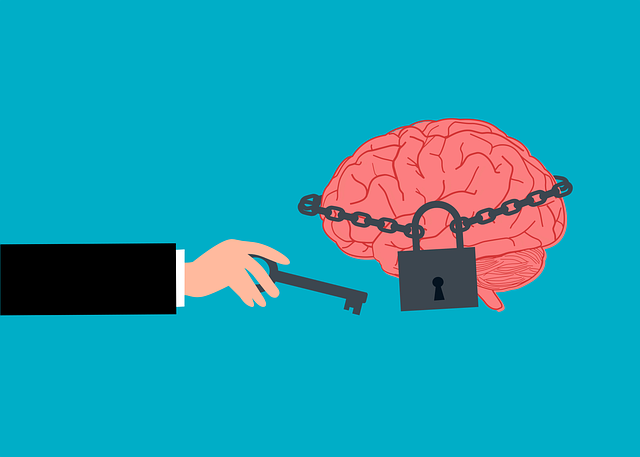Mental health and physical well-being are interconnected through the mind-body connection, where nutrition plays a pivotal role in supporting this relationship. Holistic mental health approaches emphasize the power of diet in stabilising brain chemistry, producing neurotransmitters, and enhancing overall well-being. Essential nutrients like omega-3 fatty acids, vitamins D and B, and iron are crucial for brain function and mood regulation. Popular diets like the Mediterranean and ketogenic (keto) regimes have shown benefits for mental health conditions. Personalised nutrition plans tailored to individual needs, genetics, and lifestyle are key in holistic therapy, addressing nutrient deficiencies and promoting balanced diets. Integrating food into therapeutic routines through mindful eating practices supports mental clarity and emotional well-being. Case studies demonstrate the success of nutritional therapy as a complementary treatment for various mental health issues, highlighting its potential in combination with traditional methods to achieve sustainable holistic mental health improvements. The future of holistic mental health centres on the mind-body-diet connection, with technology enhancing precise nutrient analysis and tailored meal planning.
“Uncover the profound connection between your mind and body with our comprehensive guide to nutritional therapy for mental health. In today’s fast-paced world, understanding how diet impacts brain function and mood is more crucial than ever. This article explores the holistic approach to mental wellness, delving into essential nutrients, popular diets, and personalized plans.
From navigating dietary challenges to inspiring success stories, we provide insights on integrating food as a therapeutic tool. Get ready to revolutionize your mental health journey with evidence-based strategies that emphasize the mind-body connection.”
Understanding the Mind-Body Connection: Unveiling Holistic Mental Health

Mental health and physical well-being are intricately linked through what is known as the mind-body connection. This concept suggests that our thoughts, emotions, and experiences can significantly impact our bodies’ physiological functions and overall health. For instance, chronic stress not only affects our mental state but can also lead to increased inflammation, disrupted sleep patterns, and even a higher risk of physical ailments.
Nutritional therapy, as part of a holistic approach to mental health, recognizes the power of diet and nutrition in supporting this connection. By focusing on whole foods and personalized nutritional plans, practitioners aim to nourish not just the body but also the mind. A balanced diet, rich in essential nutrients, can influence neurotransmitter production, boost brain health, and create a sense of overall well-being, thereby fostering what we refer to as holistic mental health.
The Role of Nutrition in Brain Function and Mood Regulation

Nutrition plays a vital role in brain function and mood regulation, integral components of holistic mental health. The brain is highly metabolically active, requiring a constant supply of nutrients to support its complex operations. Essential fatty acids, for instance, are crucial for maintaining cell membranes, facilitating communication between nerve cells, and influencing the production of neurotransmitters like serotonin and dopamine, which regulate mood, appetite, and sleep.
A diet lacking in these essential nutrients can lead to imbalances in brain chemistry, contributing to mental health issues such as depression, anxiety, and even cognitive decline. Conversely, a well-balanced diet rich in whole foods, including omega-3 fatty acids from fish and nuts, antioxidants from fruits and vegetables, and B vitamins from whole grains, can promote optimal brain function and help stabilize mood. This holistic approach to mental health recognizes the intimate connection between physical nourishment and psychological wellbeing.
Essential Nutrients for Optimal Mental Wellbeing

Mental wellbeing is deeply intertwined with overall health, and a crucial aspect often overlooked is nutrition. A well-balanced diet plays a significant role in maintaining holistic mental health. Essential nutrients like omega-3 fatty acids, found in fish, nuts, and seeds, are known to support brain function and mood regulation. Vitamin D, often termed the ‘sunshine vitamin’, is also vital for cognitive wellbeing; deficiencies have been linked to increased depression and anxiety.
Additionally, B vitamins, particularly B6, B9 (folate), and B12, are essential for the production of neurotransmitters, which act as chemical messengers in the brain. Iron is another critical nutrient, as its deficiency can lead to fatigue and cognitive impairment. Ensuring an adequate intake of these nutrients through a diverse diet or dietary supplements can contribute significantly to enhancing mental resilience and overall holistic mental health.
Diets and Mental Health: Exploring Popular Approaches

In recent years, there’s been a growing interest in the connection between diets and mental health, leading to several popular nutritional approaches gaining traction in the holistic mental health realm. One such approach is the Mediterranean diet, renowned for its emphasis on whole foods like fruits, vegetables, whole grains, legumes, and healthy fats, which have been linked to reduced symptoms of depression and anxiety. This diet’s focus on nutrient-dense foods promotes overall well-being, a key component in managing mental health conditions.
Another notable trend is the ketogenic (keto) diet, which drastically reduces carbohydrate intake and focuses on high-fat, moderate-protein meals. Some advocate for its potential benefits in reducing symptoms of bipolar disorder and improving mood regulation. However, the keto diet can be restrictive and may not suit everyone, highlighting the importance of personalized nutrition plans for optimal holistic mental health support.
Personalized Nutrition Plans for Effective Therapy

In the realm of holistic mental health, personalized nutrition plans play a pivotal role in effective therapy. Each individual’s nutritional needs are unique, influenced by factors such as genetics, lifestyle, and overall health status. A holistic approach recognizes that mental well-being is intricately linked to physical health, making personalized nutrition an essential component of treatment. By tailoring dietary recommendations to specific clients, therapists can address nutrient deficiencies, manage allergies or intolerances, and promote a balanced diet that supports both mental and physical health.
These plans go beyond simple meal suggestions, delving into the science behind food’s impact on the brain. Certain nutrients, like omega-3 fatty acids, are renowned for their role in enhancing cognitive function and regulating mood. Personalized nutrition therapy also considers the gut-brain axis, understanding that a healthy gut microbiome can significantly influence mental health. Through targeted dietary interventions, therapists can empower individuals to take charge of their holistic mental health, fostering a sense of control and well-being.
Integrating Food into Your Therapeutic Routine

Integrating food into your therapeutic routine is a powerful way to support holistic mental health. Nutritional therapy recognizes that what we eat has a direct impact on our brain chemistry and emotional well-being. A balanced diet rich in whole foods, vitamins, and minerals can help stabilize mood, reduce symptoms of anxiety and depression, and enhance overall mental clarity. Incorporating mindful eating practices, such as enjoying meals without distractions and paying attention to hunger and fullness cues, can foster a deeper connection with your body and emotions.
When prioritizing holistic mental health, consider the impact of different food groups. For example, omega-3 fatty acids found in fish like salmon are known to promote brain health and reduce inflammation. Similarly, complex carbohydrates from whole grains provide stable energy levels, while lean proteins support the production of neurotransmitters essential for mood regulation. By thoughtfully selecting and preparing meals, you can actively contribute to your mental well-being as part of a comprehensive therapeutic approach.
Common Dietary Challenges and How to Overcome Them

Many individuals struggling with mental health issues face common dietary challenges that can hinder their progress towards holistic mental well-being. One of the primary concerns is an imbalanced diet, often lacking essential nutrients required for optimal brain function. Processed foods, high in sugar and unhealthy fats, are prevalent in modern diets and can contribute to inflammation and mood disturbances.
To overcome these challenges, education and awareness are key. Encouraging individuals to prioritize whole, unprocessed foods like fruits, vegetables, lean proteins, and healthy fats is essential. Keeping a food journal can help identify triggers and patterns, allowing for healthier choices. Additionally, consulting with a registered dietitian specializing in holistic mental health can provide personalized guidance, ensuring dietary needs are met while supporting overall well-being.
Case Studies: Success Stories of Nutritional Therapy

In the realm of holistic mental health, nutritional therapy has emerged as a powerful tool, offering success stories that speak volumes. Case studies abound with examples of individuals who have experienced significant improvements in their mental well-being through personalized dietary interventions. For instance, research has shown that certain nutrient deficiencies can contribute to symptoms of depression and anxiety, highlighting the profound impact of what we eat on our minds.
One notable case involves a young adult struggling with chronic stress and mood swings. After implementing a nutrition plan focused on whole foods, essential fatty acids, and targeted supplements, they reported reduced symptoms and improved overall mental clarity. Similarly, an older patient with long-standing depression saw remarkable changes when their diet was adjusted to include more anti-inflammatory foods, resulting in better sleep quality and elevated moods. These examples illustrate the effectiveness of nutritional therapy as a complementary approach, enhancing traditional mental health treatments and fostering sustainable holistic mental health.
Future Trends in Holistic Mental Health and Nutrition

The future of holistic mental health lies in a growing recognition of the intricate connection between our minds, bodies, and diets. As research continues to uncover the profound impact of nutrition on mental wellness, we can expect to see more personalized dietary approaches integrated into therapeutic practices. This shift promises to revolutionize treatment plans by considering not just symptoms but also the unique nutritional needs of each individual. With advancements in technology, precise nutrient analysis and tailored meal planning will become more accessible, empowering both therapists and clients to take a proactive stance on mental health.
Trends indicate a move towards functional medicine, where nutrition therapy is no longer a secondary consideration but a core component of holistic mental health care. This approach emphasizes the use of whole foods and specific nutrients to support brain function, reduce inflammation, and optimize overall well-being. By combining evidence-based dietary interventions with traditional talk therapies, professionals can offer comprehensive care that addresses the root causes of mental health challenges. Such an integrated approach holds immense potential for improving outcomes and enhancing the quality of life for those navigating the complexities of mental health issues.
